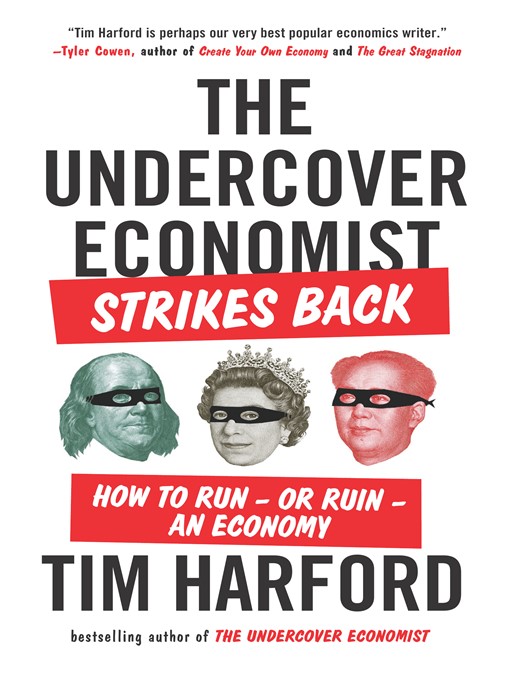
Thanks to the worldwide financial upheaval, economics is no longer a topic we can ignore. From politicians to hedge fund managers to middle-class IRA holders, everyone must pay attention to how and why the global economy works the way it does.
Enter Financial Times columnist and bestselling author Tim Harford. In this new book that demystifies macroeconomics, Harford strips away the spin, the hype, and the jargon to reveal the truth about how the world’s economy actually works. With the wit of a raconteur and the clear grasp of an expert, Harford explains what’s really happening beyond today’s headlines, why all of us should care, and what we can do about it to understand it better.
-
Creators
-
Publisher
-
Release date
January 16, 2014 -
Formats
-
Kindle Book
- ISBN: 9781101613887
-
OverDrive Read
- ISBN: 9781101613887
-
EPUB ebook
- ISBN: 9781101613887
- File size: 691 KB
-
-
Accessibility
-
Languages
- English
-
Reviews

Loading
Why is availability limited?
×Availability can change throughout the month based on the library's budget. You can still place a hold on the title, and your hold will be automatically filled as soon as the title is available again.
The Kindle Book format for this title is not supported on:
×Read-along ebook
×The OverDrive Read format of this ebook has professional narration that plays while you read in your browser. Learn more here.